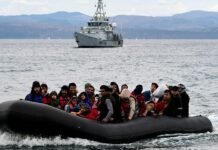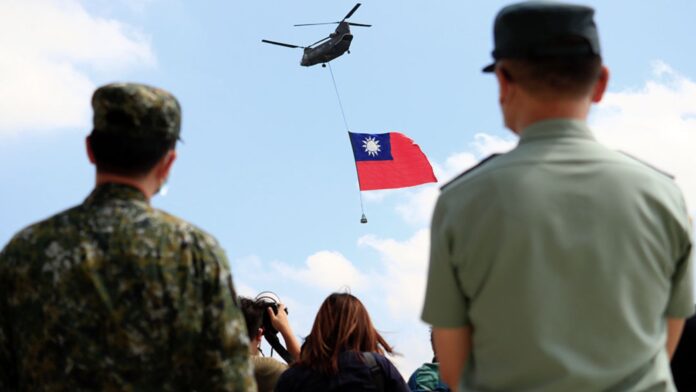Taiwan, an island of 23 million people 80 miles off the coast of China, has long been a point of tension between Washington and Beijing. Now, with the visit of Nancy Pelosi, the Speaker of the US House of Representatives, to Taiwan, these tensions have reached their peak. Beijing strongly objected to this trip and warned the United States; But Mrs. Pelosi said in her meeting with the president of Taiwan: “Today, the world is facing a choice between democracy and tyranny.” America’s determination to preserve democracy in Taiwan and around the world remains steadfast. It seems that in this smart move, America is trying to push China towards extreme violence and trap it at the right point. Meanwhile, China has the second largest GDP in the world. In 2021, China’s GDP will be 76% of that of the United States. Moreover, China’s economic growth is stable. The reasons are simple. China’s economic growth is based on comprehensive development in various sectors: agriculture, labor production, high-tech industry, etc. The demand for raw material imports has made China more connected to the global economy. On the other hand, Russia’s invasion of Ukraine can have consequences for Beijing to learn from the possible failures of the Russian forces and take this action more seriously. Beijing seems desperate for Taiwan’s “return,” but that doesn’t mean it wants a bloody war that would destroy its rapid economic growth.
Militarily, although China is experiencing rapid modernization, it is still decades behind the US military. China began modernizing its navy and air force only in the late 1990s after the 1996 Taiwan Strait crisis, and like Russia, China’s land forces have traditionally been stronger than its navy and air force. Moreover, Taiwan is a more complicated target for invasion. It is true that the Taiwan Strait is narrow, less than 100 miles wide at its narrowest point, and China has deployed a large number of missiles along its coast facing Taiwan, but even if there were no direct US military intervention—that we We can’t be sure about that – given the abundance of advanced weapon systems that Taiwan imports from the United States, it will not be easy for China to dominate the island. In the context of a potential war on the Taiwan Strait, China’s interconnectedness with the global economy is a double-edged sword for this country. On the one hand, China’s interrelationship with the world economy has been one of the most important factors in the country’s economic growth for decades, and on the other hand, the deep economic interdependence causes China’s economic vulnerability in times of crisis. China is currently the largest trading country in the world based on total imports and exports. This is mostly because China trades with the United States and its main allies. The United States and its allies make up eight of China’s ten trading partners. In a scenario where China uses force to reunify with Taiwan, severe sanctions will be imposed by the United States and its allies against China. If this happens, it will be very costly for the Chinese economy.
China’s strategic priority is to maintain a peaceful environment for economic growth. The reason is simple. President Xi Jinping’s dream is basically to rejuvenate the Chinese nation, which implicitly means turning his country back into the center of East Asia. As a result, China’s rise does not lead to a rush for territorial expansion, but rather to an attempt to become a full-fledged superpower.
The main reason behind this issue is that some American politicians are very worried about the development process in mainland China in recent years and they intend to disrupt this process with Taiwan. On the other hand, it can sell its military weapons to Taiwan. This action is not only to respond to the profit-seeking of arms manufacturers in America, but more importantly, it is done with the aim of containing China. Before Pelosi’s arrival in Taipei, the US military held a military exercise near the island of Taiwan and even stationed its warships in the South China Sea, but in fact Washington is strengthening Taiwan’s military and trying to push China into action. to lead a military to weaken and destabilize. On the other hand, China has also conducted military exercises in the Taiwan Strait in the last few days.
What the US pursues in relation to Taiwan and its strait waterway is more pressure and playing cards. America and China will not go to the option of war; Because in addition to the staggering costs, the two countries have high nuclear power. In the end, America will not back down on the issue of Taiwan; Because its allies in this region have doubts about America and will adjust their policies. If America cannot turn this doubt into trust, these countries may turn towards China and Washington’s influence in the region will be affected. For this reason, the Americans are trying to put pressure on China in various ways.
























































